
Advanced Materials Technologies
Scope & Guideline
Advancing Research for Tomorrow's Technologies
Introduction
Aims and Scopes
- Innovative Material Design and Fabrication:
The journal emphasizes the creation and optimization of new materials, including nanocomposites, hydrogels, and 2D materials, using advanced fabrication techniques such as 3D printing, inkjet printing, and electrospinning. - Multifunctional Devices and Applications:
A core focus is on developing materials for multifunctional devices, including sensors, actuators, and energy storage systems that can operate under various conditions and provide real-time data. - Biocompatibility and Biomedical Applications:
Research on materials that are biocompatible and can be used in medical applications, such as drug delivery systems, wearable health monitors, and tissue engineering scaffolds, is a significant area of interest. - Sustainability and Green Technologies:
The journal promotes research that explores sustainable materials and processes, including biodegradable materials and eco-friendly manufacturing techniques. - Advanced Characterization Techniques:
There is a strong emphasis on utilizing advanced characterization methods to understand the properties and performance of new materials, which is essential for their application in real-world scenarios.
Trending and Emerging
- Wearable and Flexible Electronics:
There is a significant increase in research related to wearable electronics, highlighting the demand for flexible materials that can seamlessly integrate with human physiology for health monitoring and other applications. - Energy Harvesting Technologies:
Emerging studies are focusing on innovative energy harvesting methods, particularly those utilizing triboelectric nanogenerators, to create self-powered devices that can operate independently of external power sources. - Smart and Responsive Materials:
Research on materials that can adapt to environmental stimuli—such as temperature, humidity, or pressure—is becoming increasingly popular, particularly for applications in soft robotics and smart textiles. - Nanomaterials and 2D Materials:
The exploration of nanomaterials and 2D materials, especially for applications in electronics and photonics, is gaining momentum, driven by their unique properties and potential for miniaturization. - Bioinspired Materials and Structures:
There is a growing interest in bioinspired designs and materials that mimic natural systems, leading to innovative solutions in various fields, including robotics, sensors, and energy storage.
Declining or Waning
- Traditional Manufacturing Techniques:
Research focused solely on conventional manufacturing methods appears to be waning, as there is a growing preference for additive manufacturing and other innovative fabrication techniques that offer greater flexibility and efficiency. - Single-Function Materials:
There has been a noticeable decline in studies centered on materials with single functionalities. The trend is moving towards multifunctional materials that can perform multiple tasks simultaneously. - Passive Sensing Technologies:
The focus on passive sensing technologies is decreasing, with a shift towards more active and responsive sensing technologies that integrate energy harvesting capabilities for real-time applications.
Similar Journals
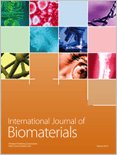
International Journal of Biomaterials
Transforming patient outcomes with pioneering biomaterials insights.The International Journal of Biomaterials, published by HINDAWI LTD, is a premier platform for disseminating groundbreaking research in the fields of biomaterials and biomedical engineering. With an Open Access approach since 2009, this journal provides unhindered access to innovative studies and applications aimed at advancing medical technologies and improving patient outcomes. Notably ranked in the Q3 category for both Biomaterials and Biomedical Engineering in 2023, it serves as an essential resource for researchers, practitioners, and students alike. The journal's Scopus rankings, including a 49th percentile in Biomedical Engineering and a 40th percentile in Biomaterials, further underscore its growing prominence in the academic community. With contributions spanning from 2011 to 2024, the journal seeks to foster collaborative research and promote developments that enhance the understanding and application of biomaterials in healthcare.
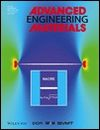
ADVANCED ENGINEERING MATERIALS
Elevating Research in Condensed Matter PhysicsADVANCED ENGINEERING MATERIALS is a leading journal dedicated to the field of materials science, particularly within the realm of condensed matter physics. Published by WILEY-V C H VERLAG GMBH in Germany, this esteemed journal has been a crucial platform for disseminating cutting-edge research since its inception in 1999. With an impressive impact factor and ranked in the top quartiles of its categories, it boasts a Q1 ranking in Condensed Matter Physics and a Q2 rank in related materials science fields as of 2023. ADVANCED ENGINEERING MATERIALS serves a diverse readership, including researchers, industry professionals, and students, striving to advance the understanding and application of innovative materials. Frequent contributions to this journal help bridge theoretical advancements with practical applications, fostering a vibrant academic and industrial dialogue. Although currently not an open-access journal, the insights shared within its pages are pivotal for anyone engaged in the dynamic sectors of engineering and material sciences.

ACS Materials Letters
Leading the Charge in Materials Research ExcellenceACS Materials Letters is an esteemed peer-reviewed journal published by the American Chemical Society, emphasizing groundbreaking research and advancements in the fields of materials science, biomedical engineering, and chemical engineering. With a robust update and established reputation since its inception in 2019, this journal has rapidly ascended to the top tiers, achieving Q1 rankings in key categories such as Biomedical Engineering, Chemical Engineering (miscellaneous), and Materials Science (miscellaneous) in 2023. The journal boasts impressive Scopus rankings, including #14 in General Chemical Engineering and #19 in Biomedical Engineering, placing it among the elite publications in these domains. While not fully open access, ACS Materials Letters facilitates the dissemination of high-impact research accessible to academics and industry professionals alike. With its comprehensive scope and rigorous selection process, the journal serves as a vital resource for researchers and students eager to stay abreast of the latest innovations and technologies shaping materials science and engineering.
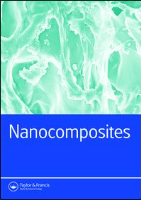
Nanocomposites
Unlocking the Potential of Nanocomposite InnovationsNanocomposites, published by Taylor & Francis Ltd, is a leading open-access journal dedicated to the interdisciplinary field of nanomaterials and their applications in composites. With its ISSN 2055-0324 and E-ISSN 2055-0332, the journal has established itself as a premier platform for disseminating high-quality research since its inception in 2015. It is notable for its impressive Q1 rankings across various categories, including Ceramics and Composites, Materials Chemistry, Mechanical Engineering, and Mechanics of Materials, reflecting its significant impact on the scientific community. The journal is recognized for its rigorous peer-review process and rapid publication times, making it an essential resource for researchers and professionals seeking to advance knowledge in the synthesis, characterization, and application of nanocomposite materials. With an open access policy implemented in 2017, Nanocomposites ensures that cutting-edge research is accessible to a global audience, fostering collaboration and innovation across disciplines. Emphasizing the critical role that nanocomposites play in advancing technology, this journal invites contributions that push the boundaries of current understanding and application.
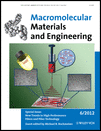
MACROMOLECULAR MATERIALS AND ENGINEERING
Exploring New Horizons in Macromolecular MaterialsMACROMOLECULAR MATERIALS AND ENGINEERING, published by Wiley-VCH Verlag GmbH, is a distinguished open-access journal that since its inception in 1989 has been at the forefront of research in the fields of Chemical Engineering, Materials Chemistry, and Polymer Science. Recognized with a top-tier Q1 ranking in multiple categories for 2023, including Chemical Engineering and Organic Chemistry, this journal facilitates cutting-edge discoveries and advancements by providing a platform for authors to share innovative findings. With an impressive Scopus ranking, positioned within the top percentiles in several interdisciplinary categories, MACROMOLECULAR MATERIALS AND ENGINEERING is an essential resource for researchers, professionals, and students who are engaged in the development and application of macromolecular materials. As an open-access journal since 2023, it enhances accessibility and fosters collaboration within the global scientific community. The journal, headquartered in Germany, aims to publish high-quality, peer-reviewed articles that drive the scientific dialogue forward in the rapidly evolving fields of materials science and engineering.
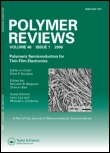
Polymer Reviews
Transforming insights into impactful solutions.Polymer Reviews, published by Taylor & Francis Inc, is an esteemed journal dedicated to the intricate and evolving field of polymer science. With its ISSN 1558-3724 and E-ISSN 1558-3716, the journal has established a significant presence among researchers and practitioners alike, evidenced by its impressive categorization in the Q1 quartiles across multiple disciplines, including Biomedical Engineering, Materials Chemistry, and Renewable Energy. Since its inception in 2006 and continuing through 2024, Polymer Reviews has consistently aimed to advance the knowledge base of polymer applications and innovations, providing a platform for comprehensive review articles that stimulate further research and inspire practical solutions. The journal, ranking within the top percentile across several Scopus categories, underscores its impact and relevance in a rapidly developing scientific landscape. Though not an open-access journal, it remains a vital resource for those invested in the future of materials science and engineering.

ADVANCED MATERIALS
Exploring the Future of Material DesignAdvanced Materials, published by Wiley-VCH Verlag GmbH, is a premier academic journal that serves as a crucial platform for cutting-edge research in the field of materials science and engineering. With an impressive impact factor and ranking among the top tiers in various categories, including Materials Science, Mechanical Engineering, and Nanoscience, this journal is recognized for its high-quality contributions and relevance to contemporary research challenges. Spanning from 1989 to 2024, Advanced Materials not only features groundbreaking studies but also provides insights into innovative applications and advancements in material design and engineering. Researchers, professionals, and students alike will benefit from the rigorous peer-review process and diverse range of topics covered, making it an indispensable resource for those aiming to stay at the forefront of materials science innovation.
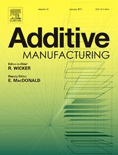
Additive Manufacturing
Driving Progress in Biomedical and Industrial ApplicationsAdditive Manufacturing is a leading international journal published by ELSEVIER, dedicated to the advancements and transformative applications of additive manufacturing technologies across various disciplines. Since its inception in 2014, it has emerged as a pivotal resource in the fields of Biomedical Engineering, Industrial and Manufacturing Engineering, and Materials Science, with an impressive impact factor and ranking in the Q1 quartile across multiple categories as of 2023. The journal serves as a platform for cutting-edge research, state-of-the-art techniques, and novel applications in additive manufacturing, making it essential reading for researchers, industry professionals, and students alike. By fostering a comprehensive understanding of the challenges and innovations within the field, Additive Manufacturing plays a crucial role in shaping the future of production technologies. With a strong readership and rigorous peer-review process, this journal ensures that its contributions remain at the forefront of manufacturing research and development.

FIBERS AND POLYMERS
Advancing the Science of Materials Through InnovationFIBERS AND POLYMERS is a prestigious scholarly journal published by the Korean Fiber Society, specializing in the fields of Chemical Engineering, Chemistry, and Polymer Science. Since its inception in 2000, the journal has provided a dynamic platform for researchers and professionals to disseminate cutting-edge findings and innovative methodologies related to fibers, polymers, and their diverse applications. With its Q2 category ranking across multiple disciplines in 2023 and a commendable standing in Scopus rankings—ranking #183 in General Chemistry and #127 in General Chemical Engineering—it is well-regarded within the academic community. The journal’s commitment to quality research is further underscored by its comprehensive coverage of technological advancements and theoretical developments relevant to both industry and academia. Access to published articles may vary, and authors are encouraged to submit original research to contribute to this evolving field. Join the community shaping the future of materials science through FIBERS AND POLYMERS.

Frontiers in Materials
Pioneering Transformative Applications in Materials Science.Frontiers in Materials, an esteemed journal published by FRONTIERS MEDIA SA, is a leading platform in the field of Materials Science, with a notable impact factor placing it in the Q2 category of its discipline as of 2023. Since its establishment as an Open Access journal in 2014, it has fostered considerable academic exchange, allowing researchers from around the globe to share their innovative findings and insights. Based in Lausanne, Switzerland, this journal not only emphasizes high-quality peer-reviewed articles but also prioritizes rapid dissemination of research, as evidenced by its commendable Scopus ranking of #62 out of 196 in Materials Science (miscellaneous). By consistently striving to bridge the gap between academia and practical applications, Frontiers in Materials serves as an invaluable resource for researchers, professionals, and students seeking to delve into cutting-edge advancements and transformative applications in materials science.